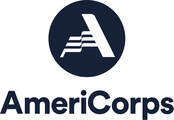CALL TO ACTION: URGENT ADVOCACY NEEDED, HISTORIC TAX CREDIT IN DANGER OF REPEAL IN TAX REFORM12/12/2016
President-Elect Trump and Speaker Ryan have prioritized moving tax reform legislation in the first one hundred days of the next Congress which begins in January. A tax reform package could move quickly through Congress by way of the budget reconciliation process, which only requires a simple majority for passage in the Senate, instead of the typically needed 60 votes to cut off debate.
Ways and Means Republican Committee members will be meeting on December 14th-15th to agree on big picture elements of tax reform with a goal to have a draft bill to review in early January. We expect tax reform legislation will follow Speaker Ryan’s “A Better Way” blue print, released earlier this year. This document recommends eliminating tax credits and deductions, which would include the Historic Tax Credit (HTC), the New Markets Tax Credit (NMTC) and the Low Income Housing Tax Credit (LIHTC). The Historic Tax Credit is in grave danger of elimination in tax reform. Historic Tax Credit advocacy is urgently needed, both in the near term and throughout 2017. The Historic Tax Credit (HTC) is the most significant federal financial commitment to historic preservation. Over the last 36 years, the credit has created 2.3 million jobs, leveraged $117 billion in investment, and rehabilitated more than 41,250 buildings—all while generating enough in federal revenue to pay for itself. The Historic Tax Credit Coalition, National Trust for Historic Preservation, National Trust Community Investment Corporation and allied organizations, like the Preservation Alliance of WV, are moving quickly to increase lobbying capacity. However, there is no substitute for the advocacy that you can provide. Your assistance is critical! We are hopeful that if a sufficient number of Senators and Representatives convey their support for the HTC to party leadership and to members of the tax writing committees, the Historic Tax Credit can be retained as an important part of a reformed tax code. Requested Action: Contact House Members of Congress ASAP– Call (during office hours) or email the offices of your Members of Congress before December 14th and ask to speak to tax staff or staff contacts you have in offices. Since there are no West Virginia Representatives on the House Committee on Ways and Means, ask that they “Please contact Chairman Kevin Brady and other members of the House Ways and Means Committee to explicitly state your support of the Historic Tax Credit when reviewing draft Tax Reform Bill.” Resources: 1. HTC Fact Sheet and Key Points to share with legislators: 2. HTC Maps a. State and Congressional Maps with Economic Data b. Interactive Mapping Tool developed by Novogradac and Company How to Contact Your Member of Congress To locate the name and phone number of your House Representative or Senators go to:http://www.sos.wv.gov/public-services/contacts/Pages/federaloffices.aspx Alternatively, call the Capitol Switchboard at 202-225-3121 (during office hours) and asked to be connected to your Senators’ or House Member’s DC office. Once connected to the office, you should identify yourself as a constituent, and either asked to be connected with tax staff or ask for the email of tax staff to communicate your advocacy. Then follow-up on your request. Historic Tax Credit Improvement Act This Historic Tax Credit Improvement Act (HTCIA) provides several reform options to enhance the Historic Tax Credit as part of a reformed tax code. While the opportunity to co-sponsor this bill has past, the legislation reflects the reform ideas that have broad political support and could be included in a tax reform package. · The House version of the bill (H.R. 3846) has attracted strong bi-partisan support on the Ways and Means Committee and presently has 53 Members of Congress supporting the bill. · The Senate version of the bill, sponsored by Senator Susan Collins (R-ME) and Senator Ben Cardin (D-MD), introduced last March has 7 bi-partisan co-sponsors. |
News and NotesCategories
All
Archives
May 2024
Subscribe to our mailing list to receive e-news updates on historic preservation news and events in West Virginia.
|
Get Involved |
Programs |
Contact UsPreservation Alliance of West Virginia
421 Davis Avenue, #4 | Elkins, WV 26241 Email: info@pawv.org Phone: 304-345-6005 |
Organizational Partners:
© COPYRIGHT 2022 - PRESERVATION ALLIANCE OF WEST VIRGINIA. ALL RIGHTS RESERVED.

 RSS Feed
RSS Feed



